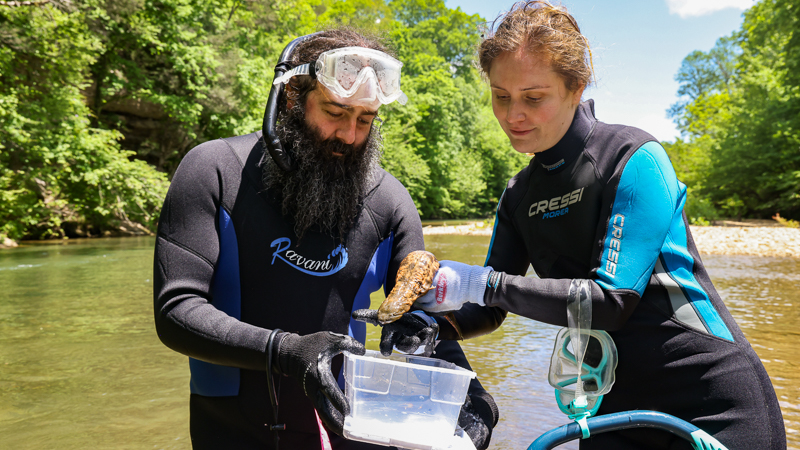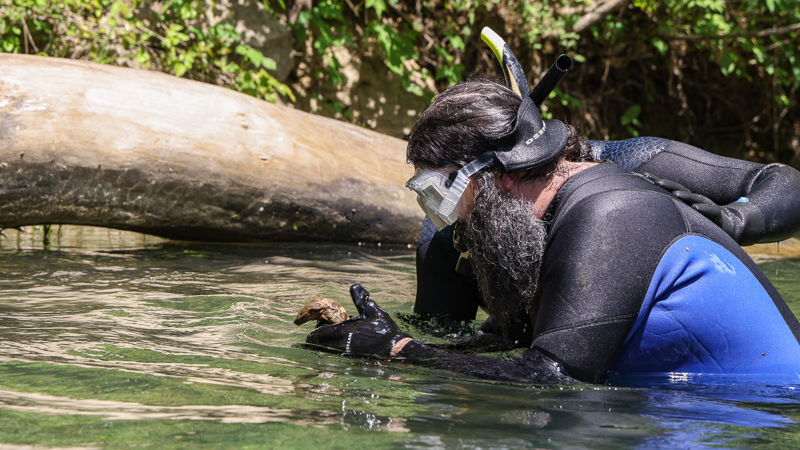Last week, Nashville Zoo’s ectotherm team in partnership with Tennessee Wildlife Resources Agency and Tennessee State University, traveled to a waterway in Middle Tennessee to release a total of 17 eastern hellbender salamanders back into the wild. These hellbenders had been raised at the Zoo as part of a headstart program. Since the start of this conservation initiative, the Zoo has released over 120 hellbenders into local Tennessee streams to help bolster the population of this state-endangered species.
Hellbender Releases
The hellbenders released this year had been raised since 2018 at the Zoo as part of a headstart program, after being collected as eggs from streams in Middle Tennessee. Each animal was fitted with radio transmitters earlier this year, allowing a team of graduate students to track and monitor the hellbenders throughout the summer. This is the fifth group of hellbenders to be released back into the wild since the summer of 2021.
 Hellbender conservation team in waterway preparing to release salamander
Hellbender conservation team in waterway preparing to release salamander
The Need for the Headstart Program
Eastern hellbenders were once widely distributed in the Eastern United States, but they are now considered threatened in most states and are a state-endangered species in Tennessee. Researchers have documented a rapid decline over the last 30 years, and Nashville Zoo recognized a need for a headstart program. Headstarting is a strategy that focuses on raising at-risk animals in human care to be then released back into their native habitat to sustain wild populations.
Breeding Success
Our hellbender conservation team has made incredible strides in past and present breeding initiatives. Nashville Zoo spearheaded the first successful captive breeding and first controlled breeding of eastern hellbenders with biotechnology in 2012, and the first successful hatching as a result of fertilization with cryopreserved sperm in 2015.
 Hellbender being released into a Middle Tennessee Waterway
Hellbender being released into a Middle Tennessee Waterway
Future Plans
We hope to continue boosting genetically distinct hellbender populations through our established headstart program. The long-term goal of Nashville Zoo's hellbender headstart program is to establish an outdoor, artificial stream on Zoo property where the herpetology team can breed hellbenders so that they can supplement eggs collected from the wild.
You can help protect hellbenders’ homes and food sources by not moving rocks in or out of rivers or waterways.


